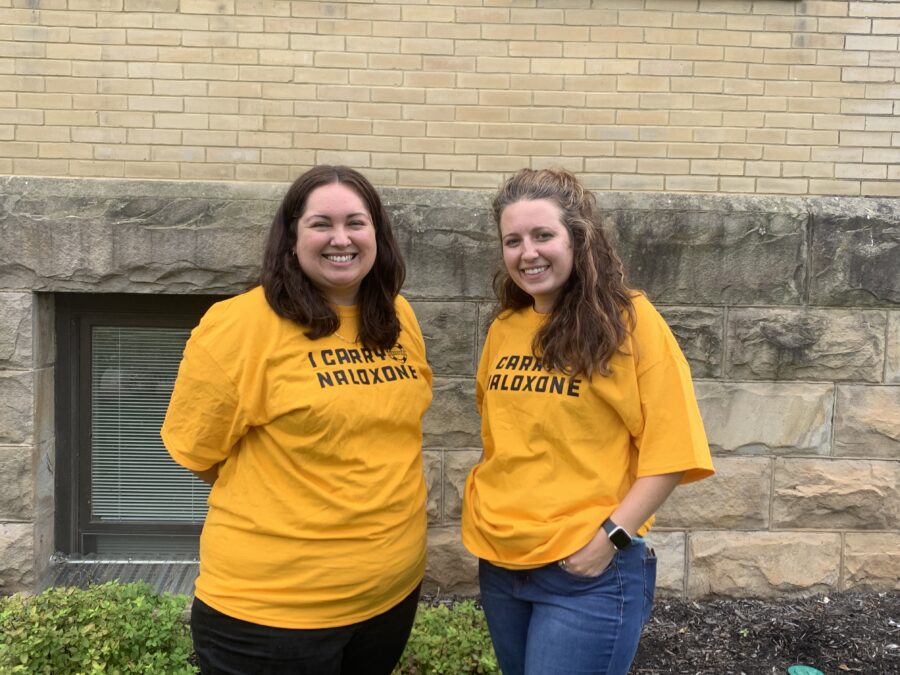After the pandemic, nearly one third of students who dropped out of college cited mental health as a major reason for why they dropped out of school. At the SGA meeting on Tuesday Sept 20, a student asked what Shepherd University is doing to support students for their mental health struggles.
Shepherd University’s Counseling Services supports students through all sorts of new initiatives. Their team is made up of three Shepherd Alumni, who all have backgrounds in social work: Wendy Baracka, Kelli Manzano, and Jami Cross. While the Shepherd team is small, they are mighty. They are working on multiple new initiatives to reach out to the student body and meet them where they are. “No matter who you are, we value you,” said Jami Cross.
Last year Counseling Services surveyed students on how the department could do better. “[Students] wanted to see us engage more directly with the student body,” said Kelli Manzano.
Many of the new initiatives are information campaigns, and others are meant to connect the students with Counseling Services. “I think there’s a real stigma around mental health professionals. I just want to show students that we are just people trying to help people,” said Jami Cross.
This past week they have had events such as a mental health orientation, mindful Mondays, mindful movement, coffee with counselors, and even partnered with the volleyball team on Sept 23 for a Mental Health Awareness night at the home volleyball game. They also paired with Save a Life Day giving out free Narcan to students on campus to help identify and save people from overdosing.
Services are open to all students, Cross said. “Mental Health services are a form of self improvement and we all have room to self improve. No issue is too small and no issue is too big for us to try and manage what [students] need.”
Manzano added that mental health services are meant to build “tool kits” to deal with high stress, overwhelm, and imbalance. They are trying to recognize a need, and trying to meet that need. For topics that are being brought up by students such as stress management, boundaries, communications, relationships, emotional regulation, and self introspection, they are planning “The Well Workshop” a biweekly group starting at the end of October through November.
Addiction is a serious problem in West Virginia with the opioid crisis not far behind. Across the nation over half of full-time college students ages 18 to 22 drank alcohol in the past month, and one third of college students admitted to binge drinking. Shepherd University wants to create a supportive environment for students who suffer from addiction.
Jacob Mellow, the dean of students and the student conduct coordinator, is working to address substance use related conduct issues with compassion. Students who are struggling may seek help with mental health services but there is also now a monthly peer group called Rams Recovery. It is a safe space that is peer led but has a professional present to provide additional support when needed.
Learning to take care of mental health, like all health, starts with information. Counseling Services has multiple information campaigns going. Wellness Wednesday is a social media awareness campaign that is currently being run by a student intern. They are posting slideshows on different topics to get information out to the Shepherd community.
Counseling Services wants to normalize mental health, spread awareness, and promote seeking help. Students can also get involved on campus by attending these events and supporting their friends. “We listen to the people we know,” said Cross.
Shepherd is asking students to make mental health a priority. “An ounce of prevention is worth a pound of the cure,” said Manzano. Students who are struggling can go visit the Counseling Services website or drop in and talk to them. No commitment required.
“We want allies,” said Baracka. There are a growing number of students who are expressing interest in “mental health ally-ship” on campus. If you are a student who is passionate about spreading awareness they urge you to connect with them.
You can connect with them through upcoming student clubs, internships, or just by attending presentations. Counseling Services want to meet students where they are at and address problems that the student body sees and the best way for them to do that is by connecting with students and having open dialogue with them.

